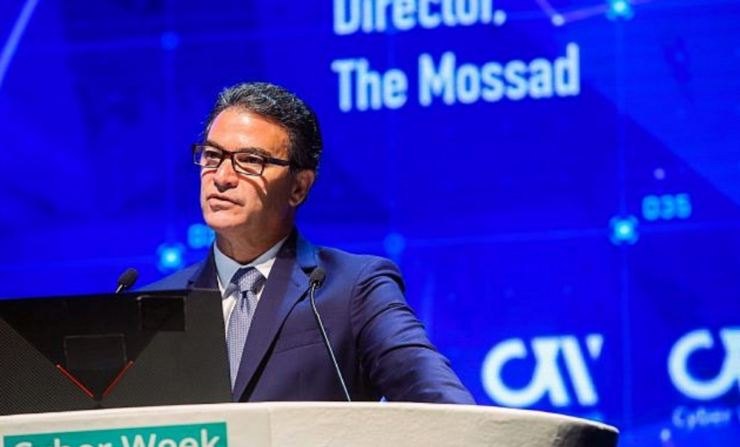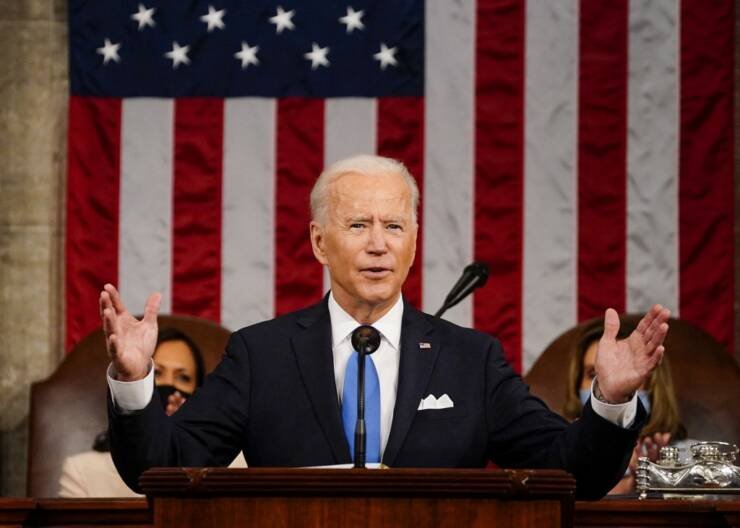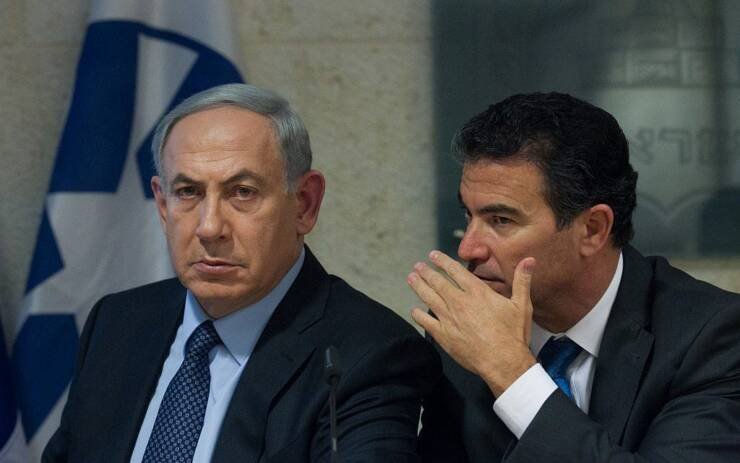
The tension between Washington and Jerusalem has intensified in recent days. The unplanned meeting last Friday between US President Joe Biden and Yossi Cohen – Head of the Israeli Mossad, did not relax the tension between Washington and Jerusalem. The understanding in Jerusalem is that Washington decision to remove the sanctions on Iran, will soon result in an Israeli “Compensation request” that will include military “Assets” that so far Israel could not get. Israeli defence sources said that this type of compensation will not help Israel in the new situation as it already gets the latest technologies form the US.
“Any form of compensation will not change the fact that the U.S implements its withdrawal strategy from the Middle East and Gulf regions and the implications are clear- one is a nuclear race that will bring other countries like Egypt and Turkey to seek military nuclear capability” one source that talked on condition of anonymity said.
“Washington wants to get rid of a headache called the Middle East but does not see beyond the tip of its nose. The vacuum is already filled and will be filled by countries like Russia and China with huge implications for the countries in the region and the US,” the senior source added.
“The spontaneous meeting between President Biden and Mossad chief Cohen, was a nice gesture but it didn’t change the very clear situation – Israel is left alone against Iran that is galloping towards a nuclear bomb” one Israeli defence source said.
According to the Prime Minister’s Office, Netanyahu instructed senior Israeli officials to oppose the renewal of the agreement with Iran, claiming that it is dangerous for Israel and the Middle East, without entering into a discussion of its details. However, the defence establishment maintains the assessment that the Biden administration is determined to re-join the nuclear agreement soon.

This understanding brought the Israeli Ministry of Defense and the IDF to prepare a list of requests aimed at upgrading Israel’s military capabilities related to the Iranian growing threat. According to reports from Washington, the US President joined a meeting between Cohen and National Security Adviser Jake Sullivan. The unscheduled meeting has been confirmed by a spokesperson for the US National Security Council who said that Cohen and Sullivan were meeting to “discuss regional security issues.” The surprise meeting enabled the Mossad head to update the US President about what Israel knows about what is referred to in Jerusalem as the “big hoax” that Israel has been following closely, especially since Israeli agents brought the Iranian nuclear archive to Israel.
Israeli Channel 12 reported that Netanyahu briefed Cohen in advance on the main issues to discuss with the American president. The issues weren’t specified, but the report came after Cohen and other top Israeli security officials held talks with senior American officials last week over the Biden administration’s plans to re-join the 2015 deal limiting Iran’s nuclear program, which Israel opposes in its current form. Israel has been trying hard to convince Washington to act in order to prevent this country from obtaining nuclear military capability.
The Biden administration is considering a near full withdrawal from some of the most stringent Trump-era sanctions imposed on Iran in a bid to get the Islamic Republic to return to compliance with the nuclear accord.
Israeli sources say that it is clear that Washington is ready to remove some very specific sanctions that interfered with Iran’s master plan to achieve nuclear capability accompanied with the means to launch a nuclear warheads to long ranges.
Yossi Kuperwasser, former Director General of the Israeli office of Strategic Affairs and before that the Head of the Research Division of Israeli Defense Forces (IDF) Intelligence said that Iran is bluffing continuously about its nuclear program. ” Iran lied from the beginning about the military aspects of its nuclear program. Just recently, the International Atomic Energy Agency confirmed that it had found anthropogenic uranium particles in at least two sites that Iran never declared to the agency.”

The Israeli expert added that under the Joint Comprehensive Plan of Action (JCPOA) terms, such deception should have caused the IAEA to stop the deal from coming into effect in the first place. The expert said that Iran prefers a return to the JCPOA because it’s the only safe path to get the capability to produce a large nuclear arsenal, even if it may take a little longer. “The Biden administration justifies its current policy by claiming that the maximum-pressure policy initiated by Trump failed because Iran didn’t succumb and instead escalated violations of the deal.”
The Israeli experts pointed out that the truth is the exact opposite.” The pressure put by the sanctions was so effective that Iran’s main goal has been to reach a point where the sanctions will be removed ” everything it has done has been focused on achieving that. This pressure gives the US a formidable starting point for negotiating a new and much better deal.”
According to a report prepared by International Institute for Strategic Studies (IISS), Iran’s has roughly 20 different ballistic, as well as cruise missiles and armed UAVs. For now, all of Iran’s ballistic missiles apparently adhere to a self-imposed range limit of 2,000 kilometres. Iran’s priority is to improve precision, notable in several missile systems: ¬
The Qiam-1, which is an 800 km-range variant of the Shahab-2 short-range ballistic missile with a 500kg separable warhead and ground-based guidance augmentation. Qiams have been smuggled to Houthi rebels, who have named it the Burkan-2H and have used it against Saudi sites. A modified version of the Qiam, which appears to have a manoeuvrable re-entry vehicle (MaRV) to further improve its accuracy, was used in the January 2020 attack against Ayn al Asad airbase in Iraq.
The Emad, which is based on the longer-range Ghadr-1 variant of the Shahab-3 medium-range ballistic missile and has a claimed range of 1,800km. Also equipped with what Iranian officials have said is a separating MaRV, it marks a dedicated effort by Iran to improve the accuracy and lethality of its medium-range missiles.
The road-mobile, solid-fuel short-range ballistic missiles in the Fateh family, which have evolved both in range from about 300 km to a claimed 1,400 km and in accuracy by means of the incorporation of terminal guidance, including an anti-ship version.
Iran’s long-term missile-development priorities will focus on missiles powered by solid propellants, which overcome the operational and performance limitations of its liquid-propellant systems. For the foreseeable future, Iran is also likely to continue to give priority to improving precision over extending the range of its missile forces beyond 2,000km. This emphasis on precision combined with the move towards solid propellants comes together most clearly in the Fateh family of short-range ballistic missiles. The remarkable rolling out of three new Fateh variants – Zolfaghar, Dezful, and Haj Qasem – in just the past four years is indicative of a significant developmental emphasis.
The meetings of senior Israeli defense officials in Washington, including this between President Biden and Yosi Cohen, Head of the Mossad have not changed the situation. Israel will have to deal with the Iranian nuclear threat.
-The writer is an International Roving Correspondent of the publication.








